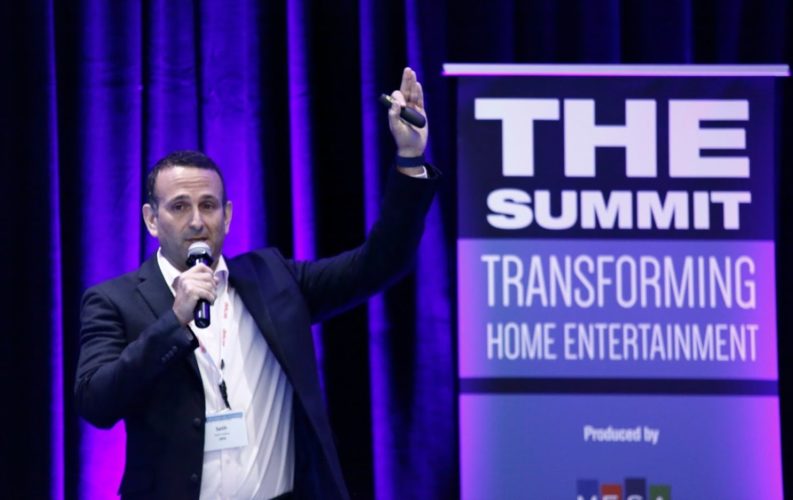M+E Daily

Hallen: M&E Can Take a Page from the Military
Story Highlights
LOS ANGELES — At first glance, you’d think there’d be absolutely nothing in common between the military and the media and entertainment industry. Yet Seth Hallen thinks the latter can take lessons from the former.
Hallen — president of the Hollywood Professional Association, SVP of global creative services at Sony DADC New Media Solutions — said during a keynote address at the recent Transforming Home Entertainment (THE) Summit that media and entertainment companies can employ the mentality that the U.S. military has employed since the end of the Cold War: VUCA.
The acronym stands for volatility, uncertainty, complexity and ambiguity, and it’s been gospel in military circles for decades, when it comes to describing and reflecting on fluid situations. “Today, war and combat is chaotic, volatile, uncertain, and complex,” Hallen said. “A lot can change unpredictably.”
Instead of waiting for conflicts to “get back to normal,” the military began employing the VUCA mentality, accepting the chaos, and changed their strategy, approach, and tactics for war. And that same mentality can work in a volatile industry like home entertainment, Hallen said.
“If the military can do this and define modern warfare in this way … it [can work] for the home entertainment industry,” he said. “With all of the standards and all of the formats and all of the crazy consumer behaviors and devices that are there, certainly this concept relates to our world.
“If the military can change the way it relates to war — literally life and death — then we can change the way we look at our industry.,”
When you begin to look at the world in a VUCA way, you can anticipate volatility, you can anticipate chaos, and in fact, you can find opportunity in it, Hallen said. “[And] I’d much rather navigate in a VUCA world, than [one] where everything’s buttoned down, bolted up and there’s no opportunity to innovate,” he added.
Culture is at the core of change, and while it can’t be quantified, it’s tangible and tied to results and performance. With the VUCA mentality, M&E companies can be more agile “the most important trait, the [main] characteristic in home entertainment in a VUCA world. Being agile, building agile organizations, is really, to me the most important thing,” Hallen said.
With VUCA, giant media and entertainment companies can think like small companies, which has advantages in terms of disruption and looking at the business in a fresh way. Take business unit managers, and have them “pretend in their mind that [their division] is their company” and that they’re responsible for running that small business, where they build a strategy and a plan ahead, Hallen said.
Every six months, do a top-down look at your place in the market, and “pretend you don’t have a business, pretend that your building a company from scratch,” he added. “Think about who would be on your team, what infrastructure would you have, what partners would you take on, what tools. Look at that vs. what you currently have, and do everything you can to close that gap.
“Then you’ve taken on all the benefits of a start-up. You can be a start-up every six months.”
In any company successfully managing technology, or home entertainment, using a VUCA environment means having individuals who are cross-functional. Often in organizations, people are worried about not stepping on others’ toes, or feel risk when they step out of their job description.
“Promote and encourage people to reach outside of their job description,” Hallen said. “There isn’t one person that knows everything.”









